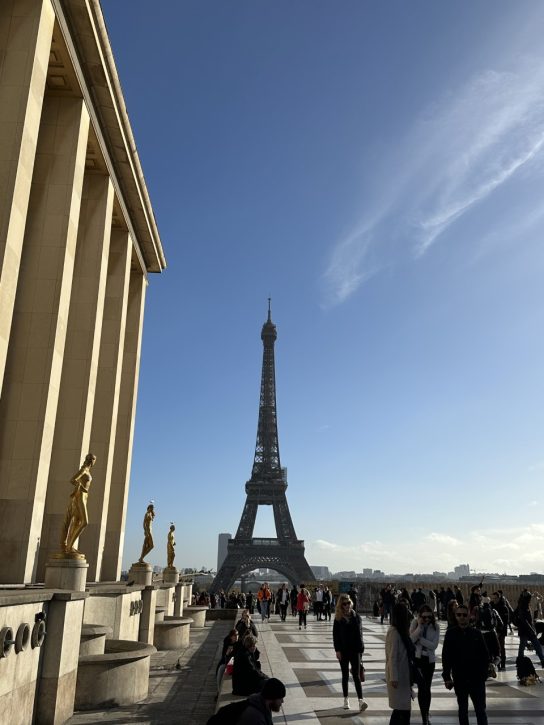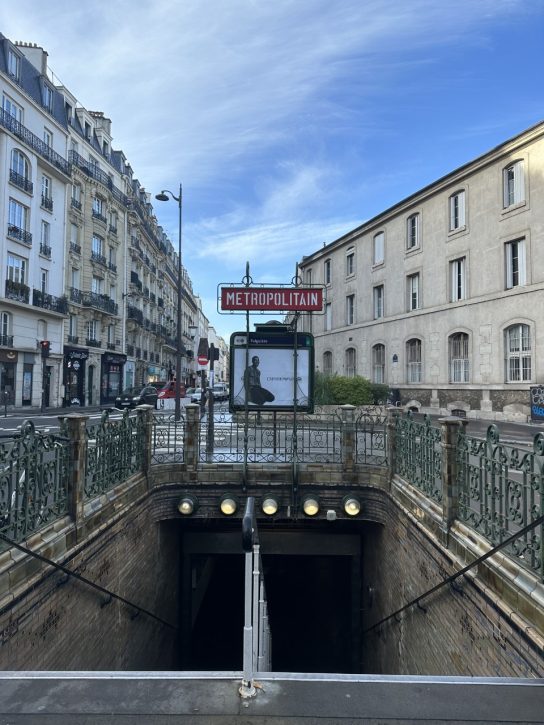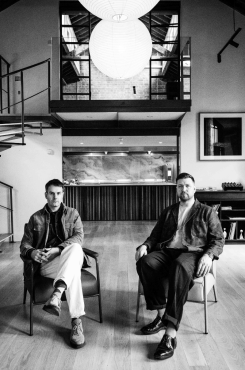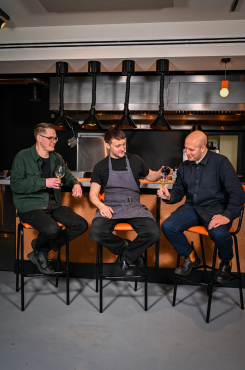Adam Hyman on how Paris is winning after Brexit
Published 3 December 2022
by Adam Hyman

View of the Eiffel Tower, Paris (Credit: Adam Hyman)
As my Eurostar whizzed across northern France last Thursday morning, I found myself in conversation with a friendly fella on the seat opposite. The chap in question worked for a well-known US investment bank, and he was travelling to Paris on business, for a work dinner. After we chatted about restaurants – I’d not heard about the one they were off to, but it sounded fun – our conversation turned to why he and his client were meeting in Paris. The answer was to be the soundtrack of my trip for the next 36-hours. The album’s name? Brexit.
As we continue to emerge from the fug of the pandemic, it seems the realities of Brexit are only now starting to kick in: 2022 has been as tough as the years before it. We’ve even had two prominent Brexiteers – Lord Wolfson, the CEO of Next, and Wetherspoons founder Tim Martin – call for a freer movement of people to help fill vacancies in industries such as retail and hospitality. The narrative that foreigners were ‘taking our jobs’ has never sounded so mythical.
Back on the Eurostar, and I learned my new banker friend was due to meet up with the majority of his colleagues who had been relocated from London after Brexit. There had been chat about Frankfurt, he told me, but eventually the bank settled on Paris. The consensus was that there’s more to do in terms of culture, entertainment and hospitality, and it’s easier to get from the French capital to London.
Our conversation proved to be a telling reminder that thousands of well-paid, talented people have been shipped out of London. It has rendered our city socially and financially poorer: so much of the client entertaining once held in London now goes on in the dining rooms of Paris.
As our train pulled into the Gare du Nord and we said our goodbyes, I gathered my belongings to meet with the Paris Society, a chic group of restaurants and nightclubs currently in serious international expansion mode. The Paris Society, which owns the iconic Girafe, with its terrace looking over the Eiffel Tower, the relatively new and buzzy Maison Russe, and CoCo in L’Opera, is coming to London next year, with projects in Sydney, Milan, Monte Carlo, and Dubai also underway.

On a beautiful winter’s day, we headed to Gigi, the group’s charming Italian restaurant in the 8th arrondissement, for lunch. Over veal Milanese and a cold glass of Pouilly Fuisee, with Brian Bendix (CEO, Paris Society International) and Mike Scalera (CCO, Paris Society International) at my table, talk turned to where Paris Society International chose to set up its HQ. It was another pertinent reminder of the situation the UK finds itself in post-Brexit: London was in the running, but it lost out to Dubai. Brexit certainly wasn’t the only factor in their decision but it certainly played a considerable part.
I visited some of the group’s other venues during my 24 hours in Paris and spent time wandering around the city. It was obvious Paris is having a moment. In the past, I’ve failed to be charmed as many others have been, but those tired clichés of rude waiting staff, average food and dirty streets appear to have faded.
Friends and clients over the past year or so have been telling me that Paris is the place to be. It’s cleverly taken advantage of the UK’s departure from the EU, positioning itself as the ideal alternative to London for so many industries. Restaurants are heaving and average hotel room rates are through the roof. Last week was my second visit in as many months and I’m already planning my next trip back.
In the crawling traffic to Gare du Nord on Friday evening, my latest sojourn in Paris at an end, the high of spending two days there began to wane. Instead, I felt a bit ashamed of how our own capital is viewed by others today. London is, and will always be, an amazing city. That much is certain. But there is no doubt our hospitality businesses, and by extension, society, are suffering after Brexit. The answer? Je ne sais pas.




